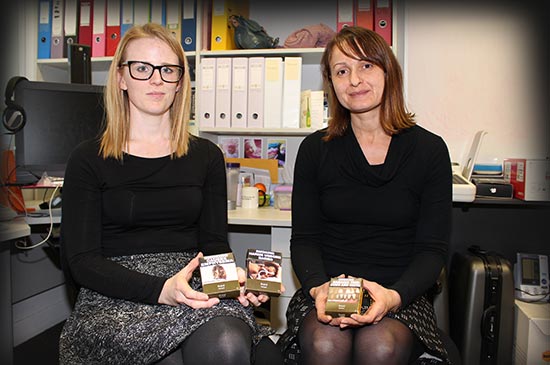
Long-term smokers involved in a study just published by University of Newcastle health researchers believed that the quality of their cigarettes had deteriorated following the implementation of plain packaging.

Long-term smokers involved in a study just published by University of Newcastle health researchers believed that the quality of their cigarettes had deteriorated following the implementation of plain packaging.
Many could no longer differentiate between brands, saying that all cigarettes now tasted the same.
“It lends support to the plain packaging legislation and provides fuel for other countries to take up the policy,” co-author Associate Professor Billie Bonevski said of the HMRI-funded qualitative study that investigated the effectiveness of tobacco messaging among socio-economically disadvantaged smokers.
“It really shows the power of branding, which is why the tobacco industry fought so rigorously against the introduction of plain packs.”
Focus group discussions took place before and after plain packaging was enacted, with PhD candidate Ashleigh Guillaumier recruiting participants from five Hunter-based welfare organisations. Among the respondents were those with mental illness, drug and alcohol dependencies or those experiencing homelessness.
“These are the people with the highest smoking rates – 70 to 80 per cent as opposed to less than 20 per cent in general society,” Ms Guillaumier said. “It’s vital that any government anti-smoking initiatives work with these smokers.”
While plain packaging was considered a worthwhile initiative to discourage young people from adopting the habit, most of the existing smokers distanced themselves from graphic imagery. More effective were advertising campaigns depicting personal case studies.
“Many thought the health effects messages were exaggerated and not the direct result of smoking, which highlights the importance of addressing the misconceptions surrounding the impact of cigarettes,” Ms Guillaumier added.
“Personalised campaigns really struck a chord with our smoking groups, such as that of a 34-year-old smoker named Brian which showed the rapid deterioration of his health after being diagnosed with lung cancer.”
Researchers felt that many of the smokers surveyed would benefit from further promotion of cessation services such as Quitline as the majority had found quitting too difficult in the past.
* Study published in Health Education Research (Oxford University Press). Associate Professor Billie Bonevski and Ashleigh Guillaumier are members of HMRI’s Public Health and Brain and Mental Health research programs. HMRI is a partnership between the University of Newcastle, Hunter New England Health and the community.